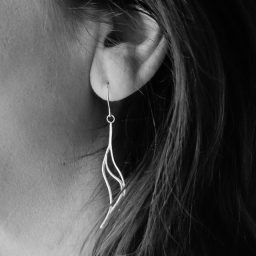If you polled most people in Albany about hearing issues, they would talk about things like ear infections or hearing loss. But the ears are complex structures that are susceptible to a number of conditions. We’re going to talk about five of the most common ones!
Ear Disorders You Might Not Be Aware Of

Not all ear problems in Albany are well-known. You may experience a variety of symptoms related to hearing and balance.
-
You have a ringing in your ears
Tinnitus is the perception of sound in your ears. It’s most often described as a ringing, but other noises are sometimes reported, including hissing, buzzing, roaring, whooshing and clicking. Tinnitus is a symptom of an underlying disease; common causes include age-related hearing loss, noise exposure, earwax, inner ear disorders, head injury, circulatory system disorders and benign tumors known as acoustic neuromas. It may also be a side effect of certain medications. It can range from an occasional nuisance to a full-fledged distraction. There is no cure for tinnitus, but coping strategies such as sound therapy and relaxation exercises often provide relief.
-
You experience a sudden loss of hearing
Acute noise-induced hearing loss may occur following exposure to a loud noise, such as a concert or sporting event. It can affect one or both ears and makes environmental sounds appear muffled. It should clear up on its own in a few hours or within a day, but repeat exposure to noise can eventually lead to permanent hearing loss. You might also experience temporary hearing loss as the result of excess earwax or a foreign object lodged in your ear. This is often accompanied by pain or a feeling of fullness in the ear.
-
Common sounds lead to an intense emotional response
If you’ve ever felt your skin crawl when somebody’s fingernails grazed a chalkboard, you can understand what people with misophonia experience. This hearing disorder causes an exaggerated emotional response to sounds that most people don’t find bothersome, such as chewing, breathing and tapping. The emotional reaction is so strong, it can cause feelings of rage and resentment, as opposed to the minor irritation most of us will feel when subjected to repetitive sounds.
-
You can hear the sound of your own pulse
If you are aware of your own pulse or another sound, such as blood circulating through your arteries, you are experiencing what is called rhythmic tinnitus, a rare type of tinnitus characterized by the sensation of sounds correlating to the rhythm of your own pulse. Symptoms often worsen when lying down or pressing your ear to something.
-
You experience vertigo
There are many possible causes of vertigo, a form of dizziness that causes a spinning sensation. You may feel that either you or your surroundings are moving, even when sitting still. Vertigo is sometimes accompanied by tinnitus and is often the result of an inner ear disorder called Meniere’s disease.
If you experience any of these symptoms, schedule an appointment with an ear, nose and throat specialist in Albany.
Many of these conditions can signal the onset of hearing loss, which should be treated promptly in order to reduce your risk of associated health complications. Hearing aids, assistive listening devices or cochlear implants are all possible treatments, depending on the severity of your symptoms.